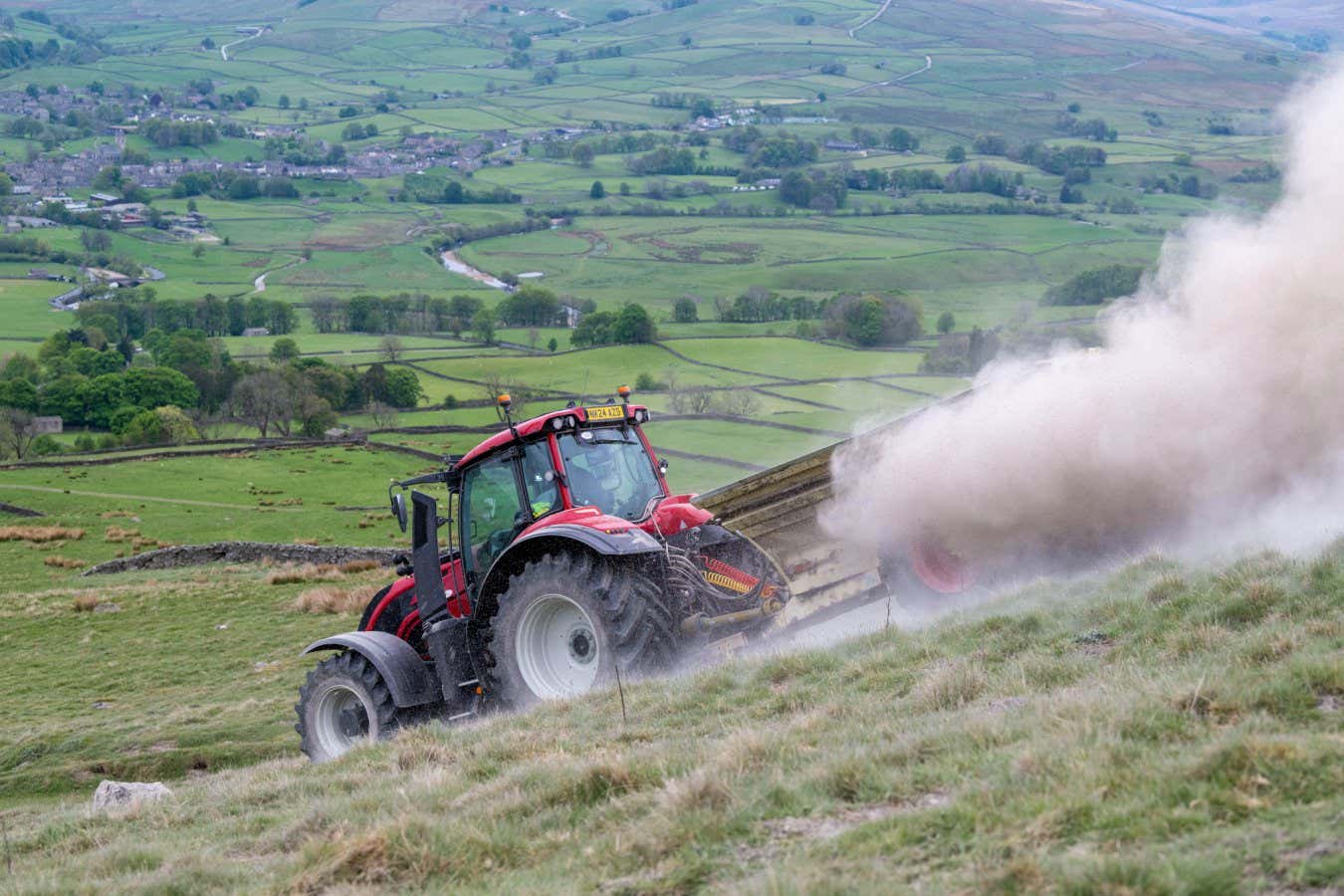Now Reading: Limestone Sprinkling on Farms Could Help Tackle Climate Change
-
01
Limestone Sprinkling on Farms Could Help Tackle Climate Change
Limestone Sprinkling on Farms Could Help Tackle Climate Change

Fast Summary
- Farmers have long spread crushed limestone on fields to reduce soil acidity, which boosts crop yields.
- Historically, liming is considered a source of carbon dioxide emissions as the dissolved alkaline rock in acidic soil releases CO2.
- New research led by Yale University indicates that liming can actually act as a significant carbon sink under certain conditions.
- A study of the Mississippi river basin revealed that liming between 1900 and 2015 removed about 300-400 million tonnes of CO2 compared to scenarios without this practice.
- factors such as fertilizer use and pollution create highly acidic soils that naturally emit CO2 even without limestone submission.
- Researchers argue for reassessing emission calculations by comparing soils with and without lime additions to provide accurate data on agricultural practices’ net impact on emissions.
- liming could be combined with enhanced rock weathering using crushed volcanic rocks for increased carbon removal potential.
- Experts warn that results vary geographically; strongly acidified soils in different regions may cause lime application to result in net CO2 emissions rather then removal.
[image Caption: Farmers spread lime on pastures to improve the quality of the soil. Credit: Wayne HUTCHINSON/Alamy]
Indian Opinion Analysis
India relies heavily on agriculture, contributing substantially to greenhouse gas emissions via practices like fertilization and land management.Adapting findings like these could enable Indian farmers to tackle both soil degradation and climate change simultaneously.While spreading limestone appears promising for carbon sequestration under certain conditions, localized studies would be critical before implementation in India due to regional variations in acidification levels. Moreover, incentivizing sustainable methods for lower-income farmers-aligned with India’s focus on climate-resilient agriculture-might reinforce food security while advancing climate goals. Careful assessment will be necessary as outcomes are context-dependent per research from Yale experts.
























